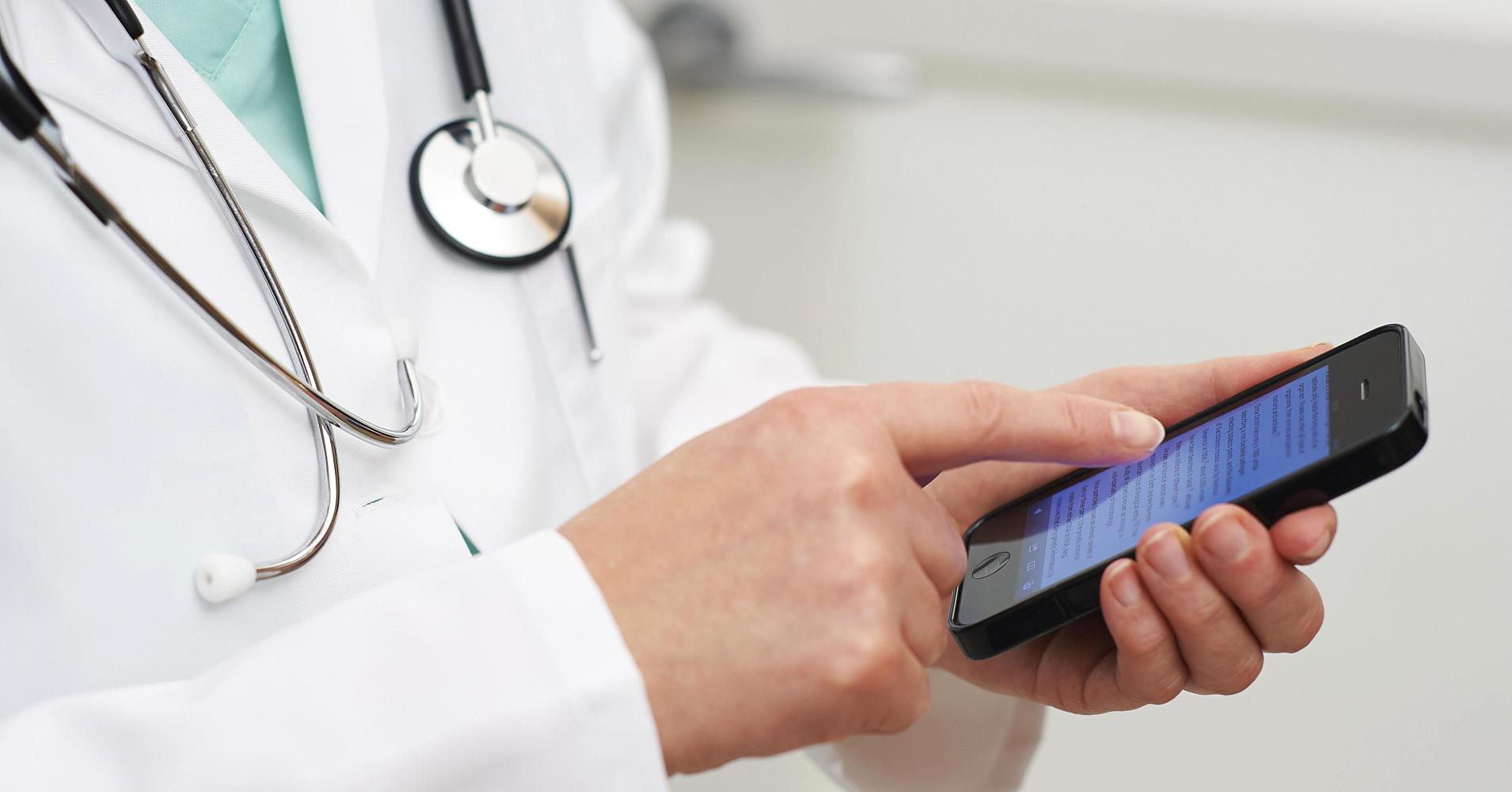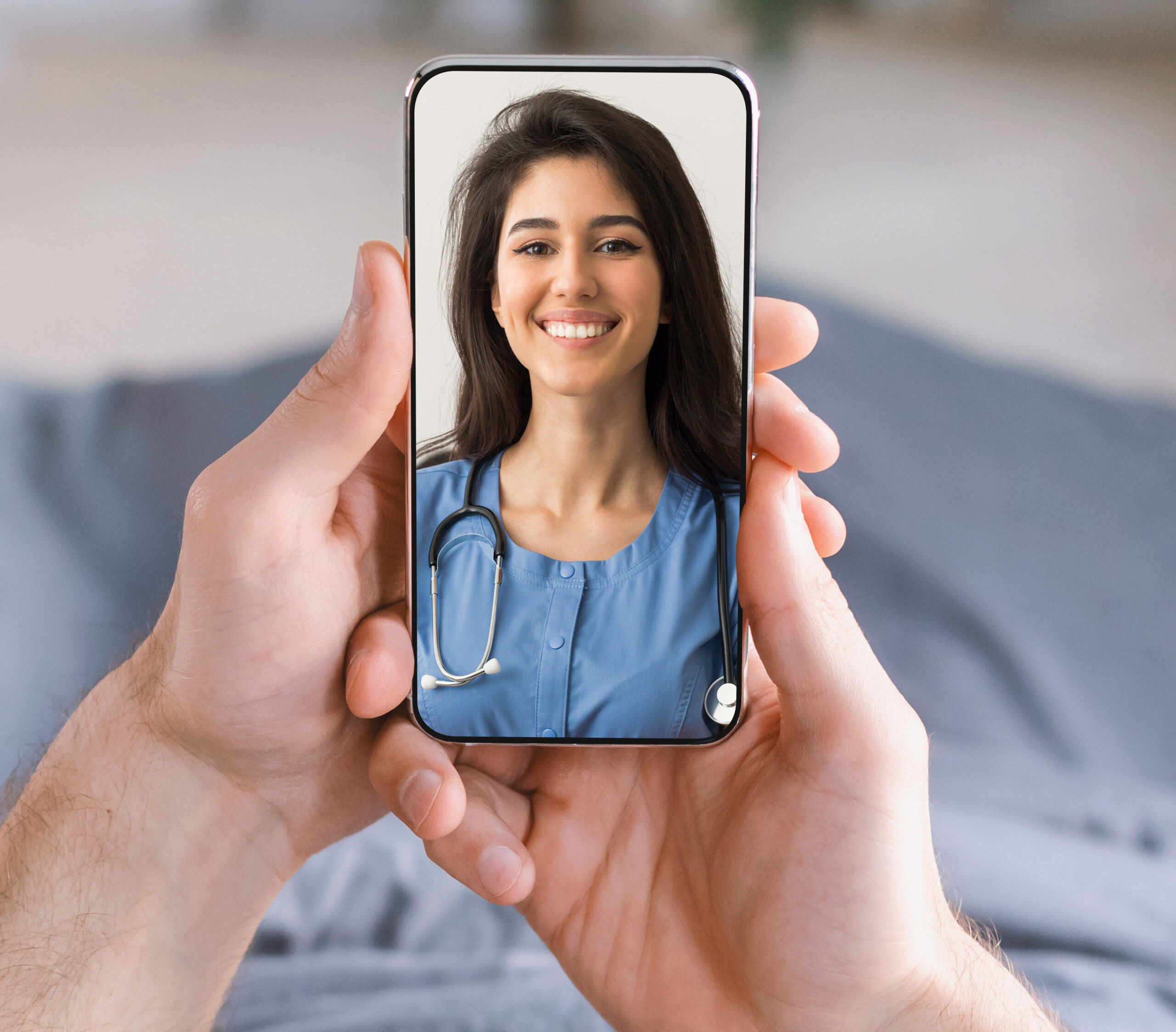The smartphone Doctor: Your Pocket-Sized Digital Healer
In an era defined by ubiquitous connectivity and the relentless march of technology, the smartphone has transcended its role as a mere communication device. It has become a multifaceted tool, a digital Swiss Army knife capable of myriad tasks, including, increasingly, acting as a personal health companion. This evolution has given rise to the concept of the “smartphone doctor,” a collection of apps, sensors, and functionalities that empower individuals to monitor, manage, and even improve their health.
This article delves into the burgeoning world of smartphone-based healthcare, exploring its capabilities, potential, limitations, and the ethical considerations that accompany its rise.

The foundation of the smartphone doctor lies in the explosive growth of mobile health, or mHealth. Fuelled by advancements in sensor technology, app development, and the increasing affordability of smartphones, mHealth has democratized access to healthcare information and tools.
Fitness and Activity Tracking
One of the most prominent aspects of the smartphone doctor is its ability to track fitness and activity. Built-in accelerometers, gyroscopes, and GPS sensors, combined with dedicated apps, allow users to monitor steps taken, distance travelled, calories burned, and sleep patterns. This data provides valuable insights into daily activity levels, encouraging users to adopt healthier lifestyles.
Remote Patient Monitoring
Smartphones are playing a crucial role in remote patient monitoring, particularly for individuals with chronic conditions. Wearable sensors, connected to smartphone apps, can track vital signs such as heart rate, blood pressure, and blood glucose levels. This data can be transmitted to healthcare providers, enabling them to monitor patients remotely and intervene when necessary. This is especially valuable for those who live in rural areas or have limited access to traditional healthcare facilities.
Mental Health Support
The smartphone doctor extends its reach to mental health, offering a range of apps designed to manage stress, anxiety, and depression. These apps often incorporate techniques such as mindfulness meditation, cognitive behavioral therapy (CBT), and mood tracking. Some apps connect users with mental health professionals for remote consultations and support.
Medication Management

For individuals managing multiple medications, smartphone apps can be invaluable. These apps provide reminders to take medications, track dosages, and even offer information about potential drug interactions. This helps improve medication adherence and reduces the risk of adverse events.
Diagnostic Tools and Health Information
Smartphones are increasingly being used as diagnostic tools. Apps can analyze images of skin lesions to detect potential skin cancer, assess eye health through retinal imaging, and even analyze voice patterns to detect signs of respiratory illness. Furthermore, smartphones provide access to a vast repository of health information, empowering individuals to research symptoms, learn about medical conditions, and make informed decisions about their health.
The smartphone doctor holds immense potential to revolutionize healthcare, offering several key benefits:
Increased Accessibility
Smartphones can bridge the gap in healthcare access, particularly in underserved communities. They can deliver essential health information and services to individuals who may otherwise have limited access to traditional healthcare facilities.
Personalized Healthcare
The smartphone doctor enables personalized healthcare by collecting and analyzing individual health data. This data can be used to tailor treatment plans, provide personalized health recommendations, and empower individuals to take control of their health.
Preventive Care
By tracking lifestyle habits and identifying potential health risks, the smartphone doctor can promote preventive care. This can help individuals avoid chronic diseases and maintain optimal health.
Cost-Effectiveness
Smartphone-based healthcare can be more cost-effective than traditional healthcare models. Remote patient monitoring and virtual consultations can reduce the need for in-person visits, lowering healthcare costs.
Empowerment and Engagement
The smartphone doctor empowers individuals to take an active role in their health management. By providing access to health information and tools, it encourages engagement and promotes self-care.
Despite its potential, the smartphone doctor faces several limitations and challenges:
Accuracy and Reliability
The accuracy and reliability of smartphone-based health tools can vary. While some apps and sensors have been rigorously tested and validated, others may provide inaccurate or unreliable data.
Data Privacy and Security
The collection and storage of personal health data raise concerns about privacy and security. It is crucial to ensure that smartphone apps and platforms comply with data protection regulations and implement robust security measures.
Digital Divide
The benefits of the smartphone doctor may not be accessible to everyone. Individuals with limited digital literacy or access to smartphones and internet connectivity may be excluded.
Regulatory Challenges
The rapid evolution of mHealth has outpaced regulatory frameworks. Clear guidelines and regulations are needed to ensure the safety and efficacy of smartphone-based health tools.
Over-Reliance and Misdiagnosis
Over-reliance on smartphone-based diagnostic tools can lead to misdiagnosis and inappropriate treatment. It is essential to emphasize that these tools should be used in conjunction with professional medical advice.
Ethical Considerations
The use of AI and algorithms in smartphone-based healthcare raises ethical concerns about bias, transparency, and accountability. It is crucial to ensure that these technologies are used responsibly and ethically.
The smartphone doctor is poised to play an increasingly important role in healthcare in the years to come. Advancements in artificial intelligence, machine learning, and sensor technology will further enhance its capabilities.
AI-Powered Diagnostics and Personalized Treatment
AI algorithms will be used to analyze vast amounts of health data, enabling more accurate and personalized diagnostics and treatment plans.
Virtual Reality and Augmented Reality
Virtual reality (VR) and augmented reality (AR) will be integrated into smartphone-based healthcare, offering immersive experiences for pain management, rehabilitation, and mental health therapy.
Integration with Electronic Health Records (EHRs)
Seamless integration with EHRs will enable healthcare providers to access and analyze patient data collected through smartphones, improving care coordination and continuity.
Advanced Wearable Sensors
Wearable sensors will become more sophisticated, offering continuous monitoring of a wider range of health parameters, including biomarkers and physiological responses.
Telemedicine Expansion
Telemedicine will become more prevalent, with smartphones serving as the primary platform for virtual consultations and remote care delivery.
The smartphone doctor represents a paradigm shift in healthcare, empowering individuals to take control of their health and well-being. While challenges remain, the potential benefits are undeniable. By embracing innovation and addressing ethical considerations, we can harness the power of the smartphone doctor to create a more accessible, personalized, and proactive healthcare system. The future of healthcare is increasingly in our pockets, and the smartphone doctor is leading the charge.



